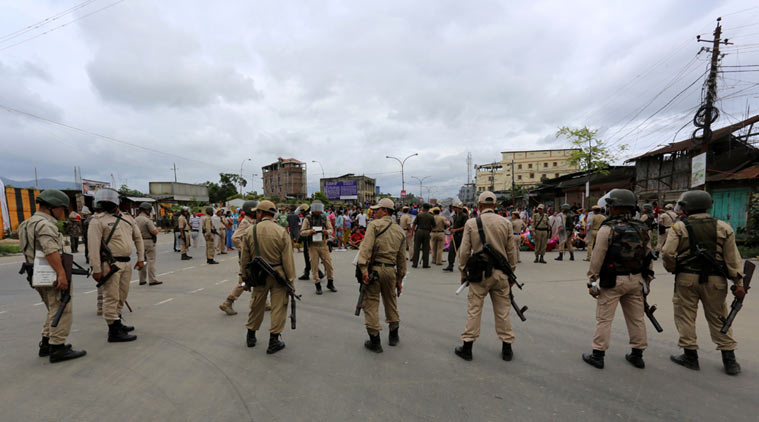
The Armed Forces (Special Powers) Act may soon be partially withdrawn from parts of Assam and Arunachal Pradesh, with the Home Ministry asking the two BJP-ruled states to review the situation in areas under AFSPA and prepare recommendations for the Centre to examine in consultation with the Army, said officials. While the entire state of Assam has been under AFSPA for the last 27 years, three districts of Arunachal bordering Assam and 16 other police station limits in the state are currently under the Act.
A senior Home Ministry official said, “We want people in these states to lead a normal life, considering that the situation in both states has improved. A major insurgent group of the Northeast, United Liberation Front of Assam, is in peace talks with the government while smaller groups have been neutralised. A relook is required to see if the Act can be partially lifted in some areas.”
Officials said the notification extending AFSPA in Assam and Arunachal is issued every six months after a review.
“Recently, we reduced this duration to three months and will see if it can be withdrawn completely from certain areas. For the time being, the proposal is only for the two states but we are also looking at a similar solution in Manipur,” said the official.
Earlier, the BJP had been against the withdrawal of AFSPA, saying that it could help extremists.
In May, the Home Ministry extended AFSPA for three more months in Assam. In the same month, the Ministry issued a fresh notification to continue AFSPA in Arunachal for three months, until August 8. The notification stated that the three border districts of Arunachal were being used by militants of the National Democratic Front of Bodoland (NDFB) to escape to Myanmar and that 25 incidents of violence were reported here from September 2016 to February 2017.
The Act is also in force in Nagaland, Manipur (except the Imphal municipal area), parts of Meghalaya bordering Assam, and J&K.
The controversial Act, which has given rise to several allegations of rights violations, empowers the Army and central forces deployed in “disturbed areas” to “shoot to kill” and arrest any suspect without a warrant. It was imposed in Punjab during the militancy before being withdrawn in 1997, and in Tripura from 1997 to 2015.
“The Army is of the view that if state governments require its presence, it will have to be given powers under AFSPA. Once the Army is withdrawn, the states will be required to deploy their own forces. These local forces can be supplemented with central paramilitary, which will work under the Indian Penal Code instead of AFSPA,” said another senior official.
The official said that the Army has already been removed from operational roles in some areas of these two states and replaced by the paramilitary.
One of the primary reasons cited by the Centre for imposing AFSPA in Arunachal’s Tirap, Changlang and Longding, all bordering Assam, and 16 police station limits was alleged extortion and killing of security forces by the National Socialist Council of Nagaland (Isak-Muivah) and NSCN-K in these areas.
While the NSCN-IM signed a framework agreement with the government, the NSCN-K’s capabilities have been depleted after the death of its leader S S Khaplang, officials said.

Post Your Comments